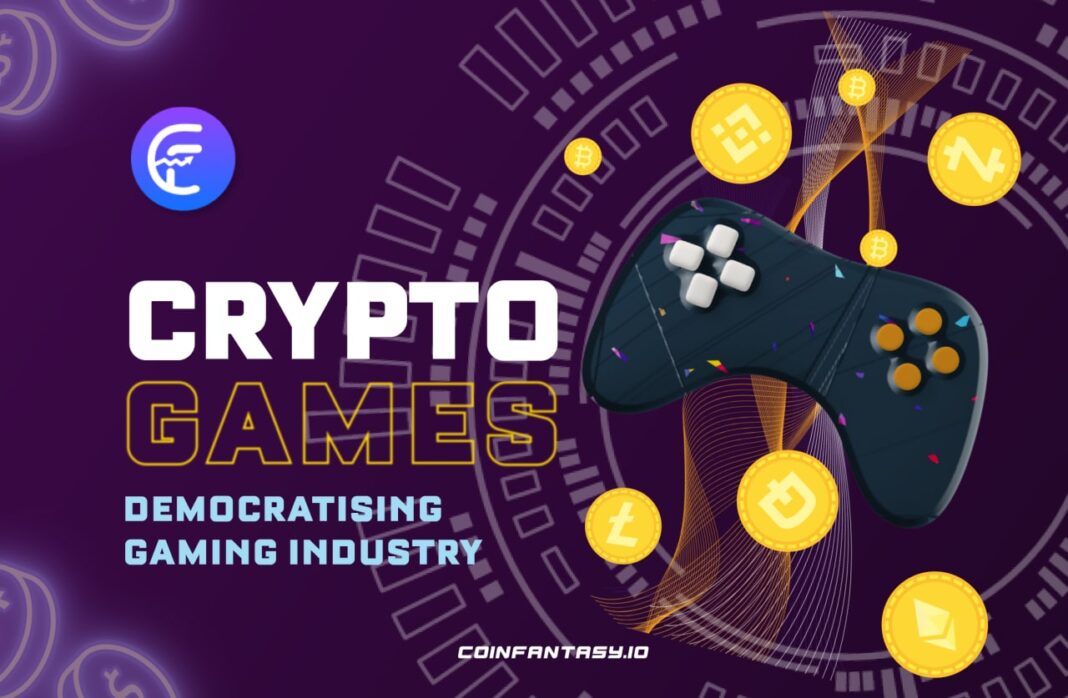One of the developments in blockchain since the COVID is the advent of crypto games. These games allow users to play and earn by selling assets, mining or farming assets, and buying and selling avatars. These democratizing gaming players have their avatars personalized to a certain degree and often haven’t met in person.
Blockchain is one of the first technology that has impacted the market at a breakneck speed. One of the democratizing gaming challenges for users in the gaming industry is that they are mere custodians of the assets. But, if you as a gamer buy a digital asset, the gaming industry still sees it as theirs. These digital assets can disappear forever if the company shuts down or changes its direction.
In 2019, we witnessed the launch of the beta version of Ultra. Ultra is a blockchain-based gaming platform. They aimed to end monopoly distribution by providing new developments to game developers, players, and influencers. According to Technori, the company got over 100 million downloads worldwide, and its staff grew by a 30-person team. Thus, it is evident that democratizing gaming is still a topic for debate.
Democratizing Gaming in Crypto: The Progress
Adoption of Non-Fungible Tokens
Traceable to 2015, OPSkins was the largest marketplace for digital assets. NFTs are blockchain-based tradeable assets or items, usually for online games. Headstuff expressed that cryptocurrencies have been prominent NFTs since 2017, but hundreds of NFTs of different types exist. Each of these tokens possesses specific characteristics that make it different from similar tokens.
Historically, a single entity represents online tradeable assets. However, in the case of online gaming, the game publisher creates items and might not publish the circulating supply of each item. Thereby limiting the gamer’s knowledge about how many of the items are out there. Thus, gaming companies can decide who can trade the items. Also, the existence of these items depends on the game’s survival and the company.
With NFTs, there is a shift in ownership. These items are decentralized, making it impossible for things to be banned, disappear, replicated, or susceptible and subjected to trade holds. Therefore, game owners are genuine owners of their tokens and assets with no centralized entity holding them by the jugular. If you want to know more about NFT games, this article will help you get a grasp of them.
Why Blockchain as Imperative to This Initiative?
Blockchain is an attractive brand to millennials, and the trust associated with it makes it appealing. As a result, Blockchain and NFTs solve several issues faced by gamers. But how? Using tamper-proof, easily traceable, permanent, and irreplaceable data storage.
In terms of scarcity, Blockchain might have broken the record by being accessible to the public. However, making every NFT’s history trackable without relying on a third party proves that these assets are scarce if minted.
Blockchain also promises attractive incentives for gamers to keep playing online games. Therefore, players who can reach higher levels in the games by fulfilling in-game objectives receive NFTs as rewards. When players advance in the game (play-to-earn), the NFTs earned are sent to their respective smart contracts.
In addition, Blockchain proposes utilization by the original purchaser against the common in-game purchases locked into the game with limited use by anyone. Therefore, with democratization, assets can be conveniently stored in a wallet. This gives owners a view of all their earnings from various games in their possession.
Future of Crypto Democratization
In addition, the recent rebellion has also contributed to P2E’s rise. The decentralization of blockchain makes the technology behind NFTs possible. By democratizing gaming, more gamers can share the potential profit of gaming rather than just the publishers of the games.
Game Station a Good Fit into the Bigger Picture for Gaming
GameStation decentralizes the game development structure by empowering developers and gamers. Furthermore, they provide the necessary tools and resources for developing the next generation of P2E gaming on the blockchain. Therefore, gamers can join hands-on with developers to produce better gameplay and revenue for themselves.
Therefore, developers will no longer have to give up their rights to intellectual property. Instead, they would work with gamers from all over the world to build Blockchain games. This democratizing gaming will benefit publishers, gamers, and the gaming community at large.
Final Thoughts
Democratizing crypto games puts the power in the hands of gamers instead of game publishers or companies. Blockchain technology is the tokenization of everything that will continue to leave its mark on the gaming industry.
With Metaverse, Blockchain, and DAO in place, gaming will eventually power the financial aspect significantly. Do you think the future is here? NO. It’s gradually unfolding with positive steps towards a transformed digital gaming industry with power in the hands of democratizing gaming for gamers.

